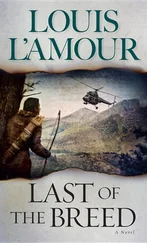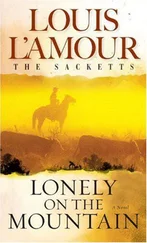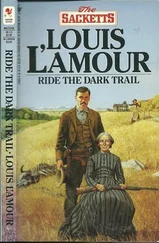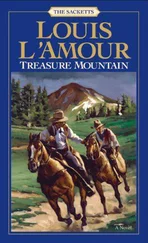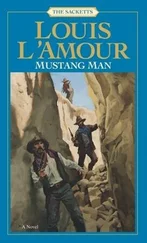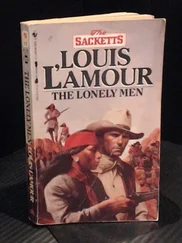Three small windows, their glass gray with dirt, looked out upon the road they had just left. Against the wall on the inner side was a long wooden bench, fastened to the wall. Before it was a heavy table and several stools lined the table's opposite side. In the corner opposite was a huge stove built of whitewashed brick, and from the top of the stove to the wall was a shelf some eight feet wide that was also built of the same whitewashed brick. On this palati the family slept at night, as well as any guests who might be present. A buxom girl with two thick blond braids entered and began putting dishes on the table. On Boyar's advice they had brought their own tea and sugar, the custom of travelers in Russia, for the tea along the tracht was scarcely drinkable. The food on the table consisted of eggs, black bread, some thick green soup which was very hot, and butter.
"I think we should drive on," Boyar advised. "I am sure these are honest people here, but if Madame is not tired--?"
Helena looked up, smiling. "If you can ride farther, I can also!"
"How soon will you try to contact your friends?"
"At Perm ... and that is a long way yet."
Outside the cold was bitter. The tarantas started with a rush, then settled down to a steady jog. The village fell behind and they entered upon a vast plain scattered with clumps of trees. The sky had turned gray and sullen, and as the miles went by the driver glanced again and again at the sky. Turning on his seat, he called back to them. "Purga!"
The clouds, a flat mass above the tops of .the trees, seemed to press down upon them, and the cold increased.
Helena pressed close to him, her face against his arm. There were no buildings, anywhere, and the trees grew thicker, the country wilder and more desolate. Here the land was swept by great winds that had left the trees twisted into grotesque shapes. Snow began to fall, a few flakes at first, then increasing until all was shut out by a white, moving curtain. Boyar drew the leather curtains and the tarantas was black inside. It was like riding in a moving cave. The wind whipped under the curtains, however, and the cold could not be kept out The driver sat hunched and silent, seemingly impervious to the temperature. Jean leaned toward Boyar. "We've got to find shelter! This will get worse!" The tarantas had slowed to a walk; the driver was having trouble staying on the road. LaBarge knew the purga was the dreaded black blizzard of Siberia which could uproot trees or blow the roof off a house. Travel in such a storm would be impossible. The temperature was already far below zero and growing colder. Yet the driver was apparently headed for some place of which he knew. Finally, just when the wind seemed to become a full gale, he swung the horses into a dark avenue of trees through which the storm roared in a mighty blast. Treetops bent, glimpsed through a momentary lifting of the curtain. Behind them a tree crashed, blown down by the wind. Occasionally a blast of wind would seem to lift the carriage off the ground, but the horses were running now, and then they were in the lee of a hill and drawing up before a window which showed a feeble glow of light.
There were two doors in a log wall built against the side of a rocky hill, one for people and a larger one for the carriage and animals. With Helena clinging to his arm, Jean LaBarge opened the smaller door and they stepped inside. They found themselves standing in the mouth of a cave. Beyond a log partition they could hear Boyar and the driver stabling the horses. A small fire dying in a huge fireplace provided the only light. There was a table, a few stools, some broken harness and on one of several bunks, a man was lying. Finding a stump of candle, Jean struck a match to the wick. The flame leaped up, swaying like a dancer in the breeze from the chimney. The room was icy cold and there was no fuel. Crossing to the bunk, Jean lifted the candle and looked down at the man who lay there.
The man's face was white, the skin drawn tight against the skull, his eyes, wide open, were sunk deep within their sockets. For a moment he believed the man dead, and then he saw his lips move.
A door in the partition opened and Boyar came through with the driver. Boyar had his arms full of supplies, the tea, sugar, biscuits and some other articles with which they had provided themselves against emergency. "Get the tea on," LaBarge told Boyar. "We've a man here who's in a bad way." "No!" The driver caught LaBarge's arm. He spoke in hoarse Russian. "The man is a convict! An escaped prisoner!"
For the first time Jean noticed the loop of chain descending from under the ragged blanket. Lifting the blanket, he saw that iron bands enclosed the man's legs around each ankle, each thigh, and just above each knee. The bands were joined by a heavy chain suspended from a belt.
Holding the candle close, LaBarge removed the blanket and examined the man. His dirty shirt was stained with blood; he had been shot twice. The first was only a graze along the ribs, although it had bled severely; the other was a wound through the chest. There had been a bad flow of blood from that wound but the blood had no bubbles in it and the lung did not appear to have been penetrated. "You must do nothing!" the driver insisted. "If you are caught it is hard labor in the salt mines. Let him die."
"The hell with that." LaBarge turned. "Shin, how's the tea coming?"
"Soon ... and there will be hot water enough for the wounds." Gratefully, the escaped prisoner accepted the scalding tea. He tried it gingerly, then sipped again. With a clean cloth LaBarge bathed the wounds. Obviously, the second bullet had gone clear through, yet aside from lost blood no harm seemed to be done. Still, without care the man would bleed to death, and without fuel he would freeze.
Twice Boyar slipped into the night and each time returned with a huge armful of wood. Soon the fire was roaring. It was almost an hour before LaBarge completed his job of bathing, treating the wounds and bandaging them. By that time Boyar had prepared soup and Helena had broken bread into it. With a large spoon she fed the man, who scarcely took his eyes from her face, and then only to stare at LaBarge.
The driver sat hunched near the fire, his gaze averted, wanting no part in the crime. Yet from time to time he replenished the fire, and went with Boyar to gather more fuel. Finally, the driver went to a bunk and rolling up in his greatcoat, was asleep in a moment. Boyar gathered more fuel, ate a little, then followed him.
The prisoner dropped off to sleep and Helena joined LaBarge beside the crackling fire. Covering themselves with a blanket, his arm about her shoulders, they sat and watched the flames in silence. The cave room was warm now; the wind roared outside. Snow fell and hissed in the flames, and occasionally the wind guttered the fire, but there was no other sound but the snores of sleeping men. Under the blanket Helena reached for and found Jean's hand, and so they sat, and so, propped against a chair turned on its side, they slept.
Chapter 29
Three days the storm blew without letup, but within the cave the fire kept them warm. There was fuel within a few steps of the door, yet each day found the driver, Liakov, more frightened. Obviously he wished to be far from the cave before a searching party would come for Marchenko, which, they discovered, was the prisoner's name. He had escaped, he told them, by ducking away from a column of prisoners in a blinding snowstorm, but not before he was struck by two bullets. With his last strength he had dragged himself to the cave. "I knew of it as a boy," he told them. "It was a place where outlaws came." His eyes went to Helena. "That was before I served in the Army." "With what regiment?" Helena asked.
"The Semyonovsky, Madame. I often stood guard at the Peterhof and the Winter Palace."
Читать дальше

